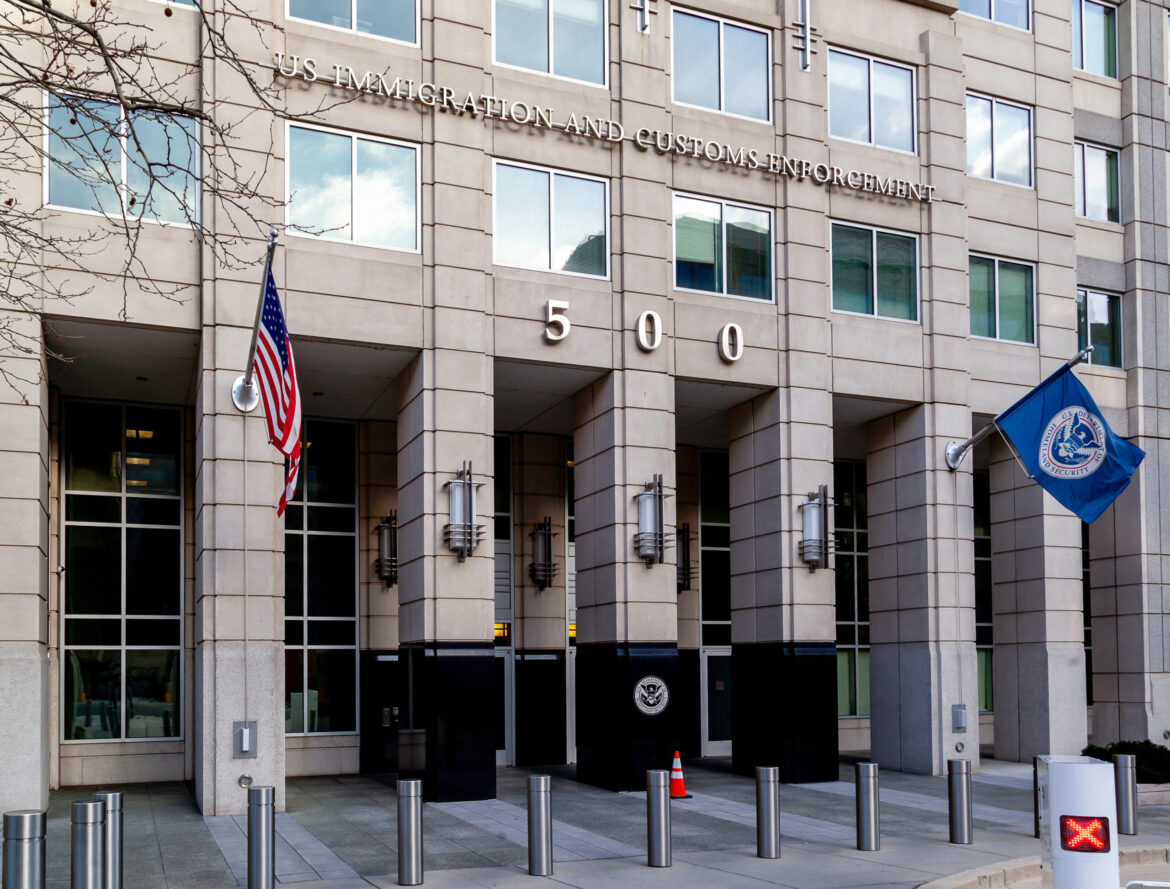A New ICE Age in Federal Immigration Law Enforcement
Learn about your students’ rights and what administrators can do should agents from federal immigration agencies come to your school.

Since 2011, federal guidance restricted “federal agents” from federal immigration agencies like Immigration and Customs Enforcement (ICE) and Customs Border Protection (CPB) from enforcing immigration laws in “sensitive” and “protected” locations, including schools.
That changed on Jan. 21, 2025, when the then-Acting Director of Homeland Security Benjamine Huffman rescinded this guidance. Consequently, school leaders, educators, parents, and students have a host of questions about how to address if, or when, federal agents arrive at the schoolhouse gate.
Below we provide some guidance, but this is an evolving situation. Further, this is general advice, not legal advice.
Students Have the Right to Attend Public School Without Regard to Immigration Status
To begin with, remember that all states have mandatory attendance laws (requiring students to be in school until a certain age). Further, under the 1982 U.S. Supreme Court ruling in Plyler v. Doe, states cannot deny a student admittance in a public school based on the student’s immigration status. Dissuading or preventing students from attending school based on their citizenship status remains unconstitutional.
That said, here we call attention to the application of the Family Educational Rights and Privacy Act (FERPA) and the Fourth Amendment to potential situations where federal agents seek to carry out their duties in a school setting.
FERPA Applies
Federal officials could request student record information. But remember this: FERPA applies. Generally, FERPA prohibits disclosure of a student’s personally identifiable information without parental consent. Because of the Plyler v. Doe opinion, most schools do not ask for immigration status. However, while schools might not have explicit citizenship information about a student, other records schools maintain could reveal a country of origin.
In what situations, then, can immigration officials obtain records typically protected under FERPA?
Like anyone else, federal agents can request student directory information. However, they cannot obtain a student’s directory information if a parent has opted out of disclosure. Additionally, student identifiable information must be produced pursuant to a court order, subpoena, or search warrant so long as the school makes a reasonable effort to notify the parents prior to disclosure.
Should federal agents request access to educational records, we recommend that school officials either provide student directory information, if the parent has not opted out of access, or refuse to provide the information, if the parent has opted out of access.
If non-directory student records are requested, then the information cannot be produced unless there is a subpoena, court order, warrant, etc., and the school has an opportunity to advise parents before releasing the information. It should be noted that subpoenas can also state that the parent should not be notified; in that instance, the school would not notify the parent. The best approach is to contact a school attorney who can review the document presented and provide advice on next steps.
The Fourth Amendment Prohibition Against Unreasonable Searches and Seizures Applies
Searches
The Fourth Amendment protects you and your students from unreasonable searches and seizures. Schools can control access to their grounds and so a warrant is required when federal agents seek to enter school property, just like when a police officer seeks to enter your private home. There are exceptions to the search warrant requirement (“exigent circumstances” or emergency safety situations), but the general rule is that a warrant is required.
While school officials could choose to give consent to law enforcement to enter school grounds, that is not recommended due to the disruption of education such entry would cause. Should federal agents be on school grounds to execute a warrant, school employees cannot interfere with their duties but could be in attendance unless the agent objects.
Seizures
Interviewing or questioning a student also implicates the Fourth Amendment, as that, too, must be reasonable. First, we look to whether a reasonable person would believe that the person was free to leave under the circumstances. The age of student, location of the interview (school setting), and presence of federal agents or local law enforcement are variables that might suggest a seizure is unreasonable.
Second, to determine whether a seizure is reasonable, we must look to the nature and intrusiveness compared to the governmental interest served. At least one federal district court has held that ethnic appearance, without any supporting facts, does not permit an agent to question that student.
What about the interview itself? Federal agents do not need permission from parents to interview students. But the “free to leave” standard (noted above) still applies. One can easily see a situation in which a federal agent pulls a student into a classroom to conduct an interview, and a reasonable student will believe that the student is not free to leave, thus making it unreasonable. Therefore, absent a warrant, such interviews should be avoided.
Of course, school administrators should be aware that federal agents have greater latitude to interview students in more public facing spaces, like a school sidewalk or parking lot, or across the street from the school. Students can be advised by their parents regarding answering any questions or signing any documents.
Additionally, agents can arrest students on school property when they have arrest warrants, assuming that there is probable cause. However, some states have requirements about parental notification requirements to be followed by school officials.
What Can Administrators Do?
- It might be wise to develop or update a policy or protocol through the central office that more comprehensively addresses the issues that could arise. That protocol can be amended as circumstances change.
- At a minimum, be sure to follow the FERPA guidelines, noted above.
- To protect the rights of all parties, consider not allowing entry of federal agents without receipt of a search or arrest warrant.
- If federal agents provide a warrant/subpoena, then school officials should review it and contact their school lawyer for advice on how to proceed.
Lynn Rossi Scott, J.D., is a partner at Brackett & Ellis in Ft. Worth, Texas. She has practiced school law for over 35 years, representing school districts, charter schools, higher education institutions, education foundations, and private schools. She is past president of the Education Law Association.
Mark Paige, J.D., Ph.D., is professor and department chair at the University of Massachusetts-Dartmouth. Prior to working at UMass-D, he represented school districts in New England.




